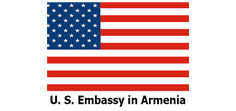As it is already known, the incumbent president of Russia Vladimir Putin won the fourth term in office in Sunday’s presidential elections. He took a record number of votes—more than 70%. In the 18 years that he has been in power, Putin has made many economic promises to his citizens. One of these promises is that of making Russia world’s fifth most powerful economy.
In 2007, Vladimir Putin announced that in 10 years, in 2017, Russia would feature in the top five economically developed countries. Four years later, being prime minister in 2011, Putin again announced that in 10 years, in 2021, Russia would feature in the top five largest economies. Only two months later, in Moscow, Putin made the same promise, however, this time he mentioned a 5-year period.
Addressing the State Duma in 2012, Putin announced his intention of positioning the Russian economy among the top five economies and mentioned a 2-3 year period.
Putin gave the same promise during the 2018 presidential campaign. On March 16, 2018, two days before the presidential elections, Putin directed the government and the central bank to make Russia the 5th most economically developed country in the world by 2024.
In 2017, the World Economic Forum published the list of the world’s 10 biggest economies. At the top of the least is the USA. In 2016, the GDP of this country amounted to 18 trillion dollars, which makes up 24.3% of the global economy. China ranks second with 11 trillion dollars. Japan is in the third place with an economy of 4.4 trillion dollars. Germany, United Kingdom and France have been ranked 4th, 5th and 6th respectively. Note that Russia is not on this list.
In addition, in 2016, the Russian Ministry of Economic Development published the country’s economic prospects for the next 20 years.
The forecast suggest that the economic growth of Russia over the next 20 years will make 2% per annum, which will be 1.5 times lower than the world average. Besides this, the forecast on the real income of the population was mentioned: they will grow by an average of 1.4% per year. At this rate, in 2021 Russia will be able to return to its 2013 index.

 FACTOMETER
FACTOMETER










